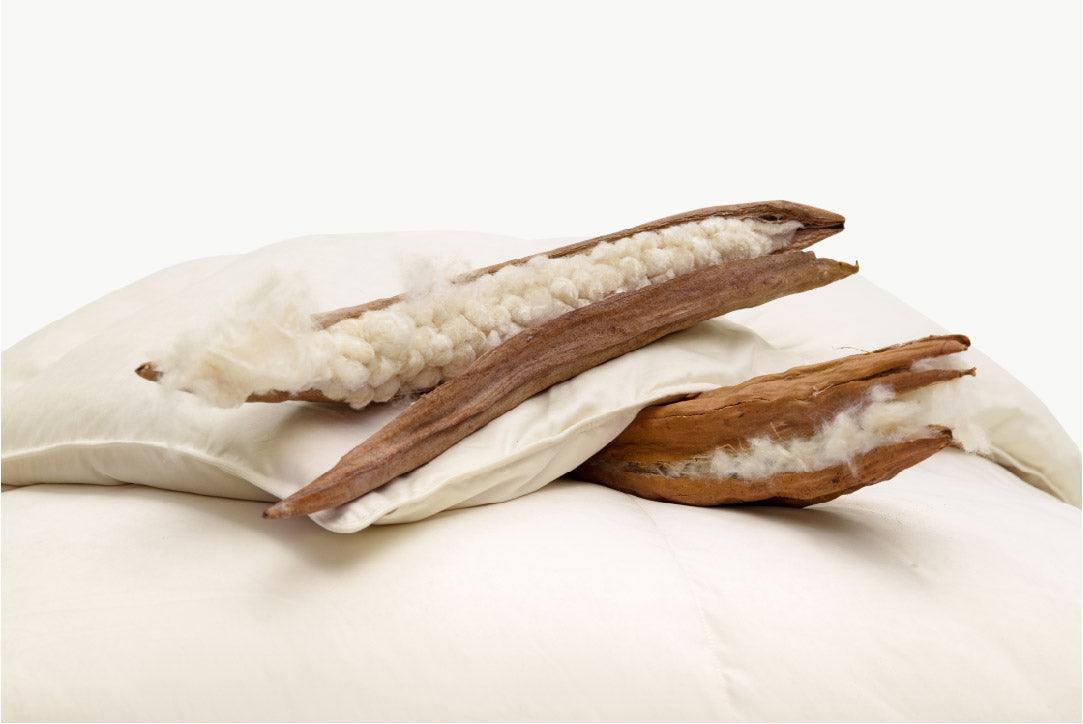As the textile industry shifts towards more sustainable practices, natural fibers have become increasingly popular. Two fibers that have gained attention are kapok and eucalyptus, both known for their eco-friendliness. In this article, we'll compare these two fibers and explore why kapok, also known as cotton silk or Java cotton, is a more sustainable choice.
Ecological Effects of Eucalyptus on Environment
Eucalyptus, a fast-growing tree native to Australia, is commonly used for making paper, wood products, and fabrics. However, it has been criticized for its negative impact on the environment. According to Forestrypedia, eucalyptus plantations have a high water consumption rate, leading to water scarcity in surrounding areas. The trees also require large amounts of fertilizers and pesticides, which can contaminate the soil and water. In addition, eucalyptus plantations are monocultures, meaning they lack biodiversity and can harm local ecosystems.
Sustainable and Functional Kapok Fiber
In contrast, kapok is a sustainable and functional fiber that has been used for centuries. According to Textile Journey, kapok fibers come from the seed pods of the kapok tree, which grows in tropical regions such as Southeast Asia and Africa. The fiber is light, fluffy, and naturally water-resistant, making it an ideal choice for filling pillows, mattresses, and other home textiles. Kapok is also biodegradable, which means it won't contribute to the pollution of landfills.
In addition to its sustainable properties, kapok has several functional benefits. Tentree explains that kapok fibers are hollow, which allows for excellent insulation and breathability. This makes kapok a great choice for outdoor apparel and gear, as it can keep you warm in cold weather while also wicking away moisture.
Why Kapok is More Environmentally Friendly
While eucalyptus is often marketed as an eco-friendly fiber, kapok is a better choice for several reasons. First, kapok trees don't require pesticides or fertilizers, making them a more sustainable choice for farming. Additionally, kapok trees grow naturally in tropical regions, which means they don't require excessive watering or irrigation. This also helps to preserve local ecosystems and biodiversity.
Another reason why kapok is more environmentally friendly is its biodegradability. Unlike synthetic fibers, which can take hundreds of years to decompose, kapok fibers break down naturally, reducing waste in landfills. Furthermore, kapok trees don't require replanting after harvest, as they continue to produce seeds throughout their lifespan.
Conclusion
In conclusion, while eucalyptus is a popular fiber in the textile industry, kapok is a more sustainable and functional choice. Kapok fibers come from a natural source that doesn't require excessive watering or fertilizers, making it a more eco-friendly choice for farming. Additionally, kapok is biodegradable, which means it won't contribute to the pollution of landfills. Furthermore, kapok's functional benefits make it a great choice for a variety of products, from home textiles to outdoor apparel and gear. So, if you're looking for a sustainable and functional fiber, kapok is definitely worth considering.
